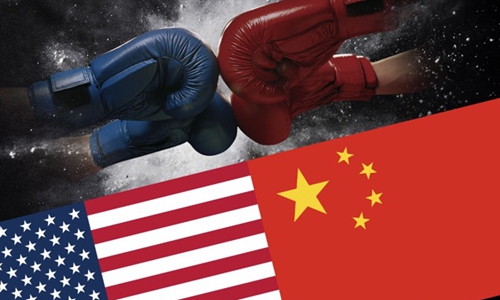With flagging influence, US distorts China’s loans
By Zhang Yi Source:Global Times Published: 2020/5/19 22:27:12

Photo: GT
In a speech via video link Monday at the opening of the 73rd World Health Assembly, President Xi Jinping said China will work with other G20 members to implement the Debt Service Suspension Initiative for the poorest countries. He also said China is ready to work with the international community to bolster support for the hardest-hit countries under the greatest strain of debt service so that they could tide over their current difficulties.
This is one of the proposals raised by Xi at the WHA. Among them, China also pledged to provide $2 billion over two years to help with COVID-19 response and with economic and social development in affected countries, especially developing countries.
China is already acting. For instance, a New York Times report cited Sri Lanka's secretary to the treasury as saying that the China Development Bank has widened a credit line by $700 million to help the country cope with the epidemic, lowered the interest rate and delayed the repayment timeline by two years.
But this is only a tiny part of the entire report, the gist of which was to accuse China of unleashing "a global lending spree" to "expand its influence" while letting poor countries stand to suffer.
Yet the report is a typical example of the double standards that Western media is good at. In the past couple of years, China has been giving loans to underdeveloped countries for infrastructure, which will not only benefit the development of recipient countries, but also boost trade in the region and across the world. Such engagement is largely free of governance conditions. On the contrary, while the US media always hypes China's influence-peddling, stories of US foreign aid with a political agenda are rarely told.
The most common type of US development aid is projects-based assistance. Aid is also provided in the form of contributions to international organizations such as the UN, and cash transfers to foreign governments only constitute a small part. With US-supported projects and funds, grass-root organizations in recipient countries can easily speak for the US and follow US values.
A 2019 report by the Congressional Research Service, a public policy research institute of the US Congress, blatantly said that an objective of US foreign assistance has been to promote democracy, a much touted value through which the US wields its influence across the world. However, many underdeveloped countries always find this political condition too costly to bear. Democracy is hardly the remedy for their economic plight. While the NYT report cited the example of Pakistan, one of the underdeveloped countries which stands at 152nd position out of 189 countries included in the UN's 2019 Human Development Index, it did not mention the disastrous consequences the US-initiated anti-terror war brought to the Pakistani economy.
Wary of an alternative aid model provided by China, the US and its media can only resort to denunciation and discredit, reflecting its double standards and "America First"-style selfishness. On the 73rd WHA, China presented itself as a responsible major power by helping the world fight the pandemic, while the Trump administration is threatening freezing permanent WHO funds. Why do the two major powers treat the global crisis with such different attitudes?
RELATED ARTICLES:
Posted in: OBSERVER